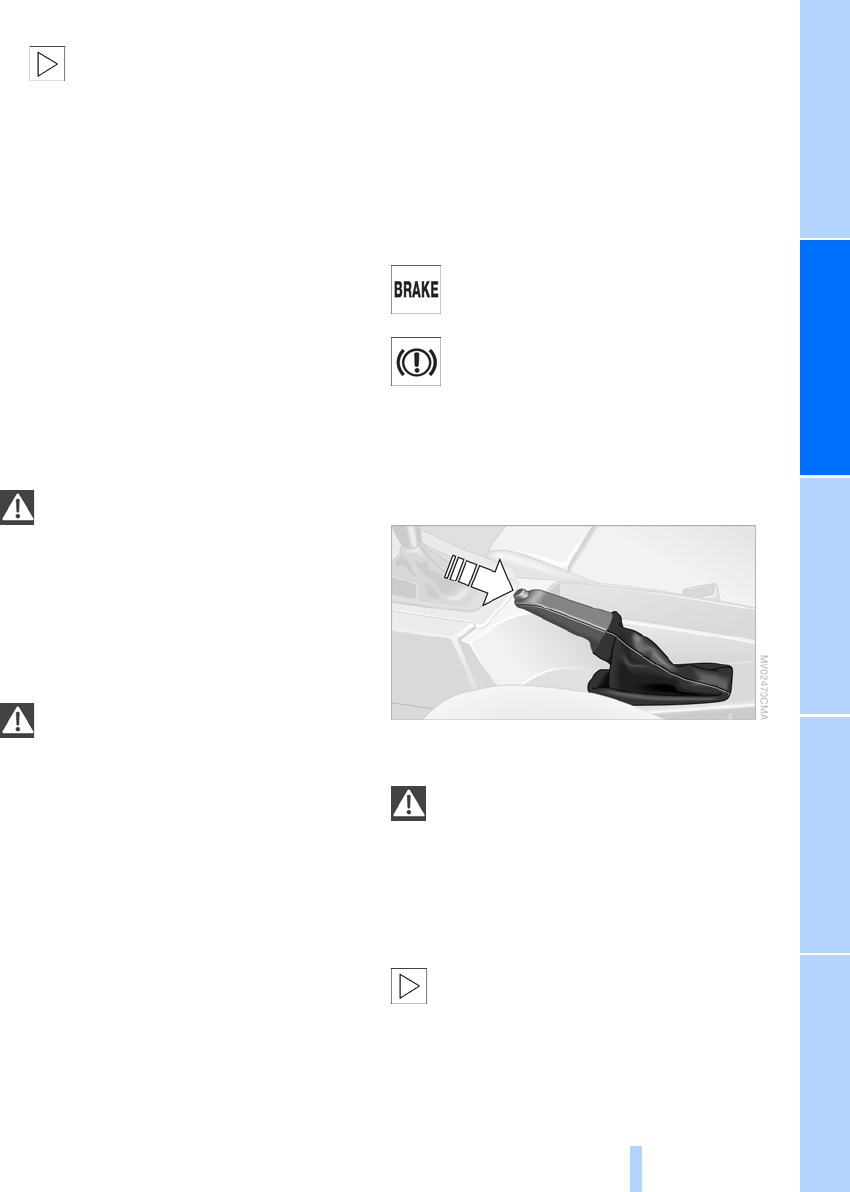
Reference At a glanceControlsDriving tipsMobility
37
If the clutch pedal is not depressed,
the motor will not start.<
3. Start the engine.
Automatic transmission
1. Step on the brake.
2. Move selector lever into position P.
3. Start the engine.
Special starting conditions
In the following situations, press the accelerator
pedal halfway down while starting:
> If the engine fails to start on the first
attempt, for instance, if it is very hot or cold.
> When starting the engine at very low tem-
peratures, below approx. +57/–156, at
high altitudes over approx. 3,300 ft/
1,000 m.
Avoid frequent starting in quick succes-
sion or repeated start attempts in which
the engine does not start. Otherwise, the fuel is
not burned or inadequately burned and there is
a danger of overheating and damaging the cat-
alytic converter.<
Switching off engine
Do not remove the ignition key when the
vehicle is rolling; otherwise, the steering
wheel lock would engage during steering.
When leaving the vehicle, remove the ignition
key and lock the steering. When parking on
downward inclines, engage the handbrake; oth-
erwise, the vehicle could start to roll.<
Manual transmission
1. Apply the handbrake.
2. Turn the ignition key to position 1 or 0.
3. Shift into first gear or reverse.
Automatic transmission
1. With the vehicle at a stop, move the selector
lever into position P.
2. Turn the ignition key to position 1 or 0.
3. Apply the handbrake.
Handbrake
The handbrake is primarily intended to prevent
the vehicle from rolling while parked; it brakes
the rear wheels.
Indicator lamp
The indicator lamp lights up; an acous-
tic signal also sounds when you begin
to drive. The handbrake is still engaged.
Indicator lamp for Canadian models.
Engaging
The lever engages automatically.
Releasing
Pull up slightly on the lever, press the button
and lower the lever.
If exceptional circumstances should
make it necessary to engage the hand-
brake while the vehicle is in motion, do not pull it
too strongly. In doing so, continuously press the
button of the handbrake lever. Otherwise,
strong application of the handbrake can lead to
overbraking of the rear axle and to associated
'fishtailing' of the vehicle rear end.<
To prevent corrosion and one-sided brak-
ing action, occasionally engage the hand-
brake lightly when the vehicle is slowly coming
to a stop if the traffic conditions are suitable.
The brake lamps do not light up when the hand-
brake is applied.<
Online Edition for Part No. 01 41 0 012 213 - © 02/06 BMW AG


















